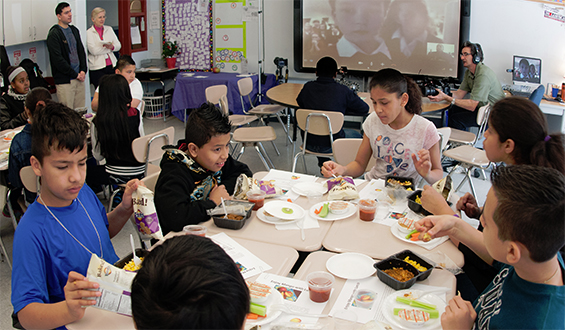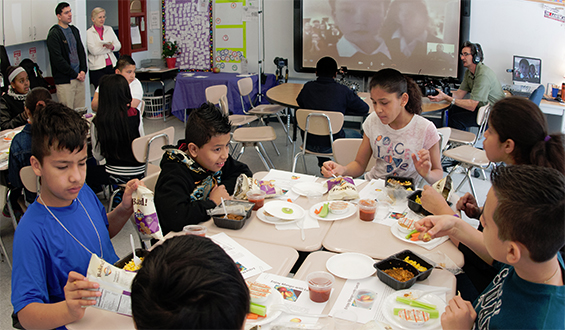 (Image: Wikimedia, Creative Commons)
(Image: Wikimedia, Creative Commons)
The number of children eating free breakfasts at their schools is rising, but so is a concern that these students may be eating breakfast at both home and school. The fear is that eating two morning meals could increase their risk of obesity.
But a new study led by Marlene Schwartz of the University of Connecticut’s Rudd Center for Food Policy and Obesity and colleagues suggests something different. It showed that children who chow down on two morning meals are less likely to be overweight than those who do not eat any breakfast at all, writes Emma Brown of The Washington Post.
“Our study does add to the argument that it’s really important to make sure that as many kids as possible are getting a healthy breakfast,” said Schwartz, one of a team of researchers who conducted the study, which appears in the journal Pediatric Obesity. “Especially in low-income communities, having universal access to healthy breakfasts is helpful.”
Supporters of free meals, including the First Lady, see this movement toward offering lunch and more recently breakfast and even dinner as a crucial way to battle hunger among kids in the US who are living in poverty. Almost four million American families cannot provide the minimum daily food requirements for their children, shows federal data from 2012.
The advocacy group Food Research and Action Center found that although most public schools nationwide are part of the federal school breakfast program, millions of eligible kids are not eating the meals.
The scientists followed 580 students in 12 schools in New Haven, Conn. from fifth grade to seventh grade through 2011-2014 to keep track of their breakfast participation and their weight. Just one in 10 students were double-breakfast consumers. Their weight over the years was the same as the average weight change of all the students.
Those students who skipped breakfast and students who were inconsistent in their breakfast consumption, mostly girls, were two times more likely to be overweight or obese than the kids who ate two morning meals. In short, as Schwartz explains, “two breakfasts are better than none.”
According to UPI, data from the US Centers for Disease Control and Prevention records that approximately one-third of American young people are obese or overweight.
The study, conducted at Yale University, writes Mia Bechak of WTNH-TV, follows a previous report that found eating breakfast is connected to better academic performance, improved health, along with healthier body weight for young people.
The study included a collaboration with the Community Alliance for Research and Engagement (CARE) at the Yale School of Public Health. The research supports providing a healthy breakfast to children at school to help what the scientists call “food insecurity.” They add that morning meals at school are made up of healthy food choices such as whole grains and fruit, much like a healthy snack.
Those involved with the research believe this study could be a significant discovery for policy makers searching for a resolution to the child obesity epidemic that is sweeping the modern world. The highest rates of obesity in children are among Latino and black children.




